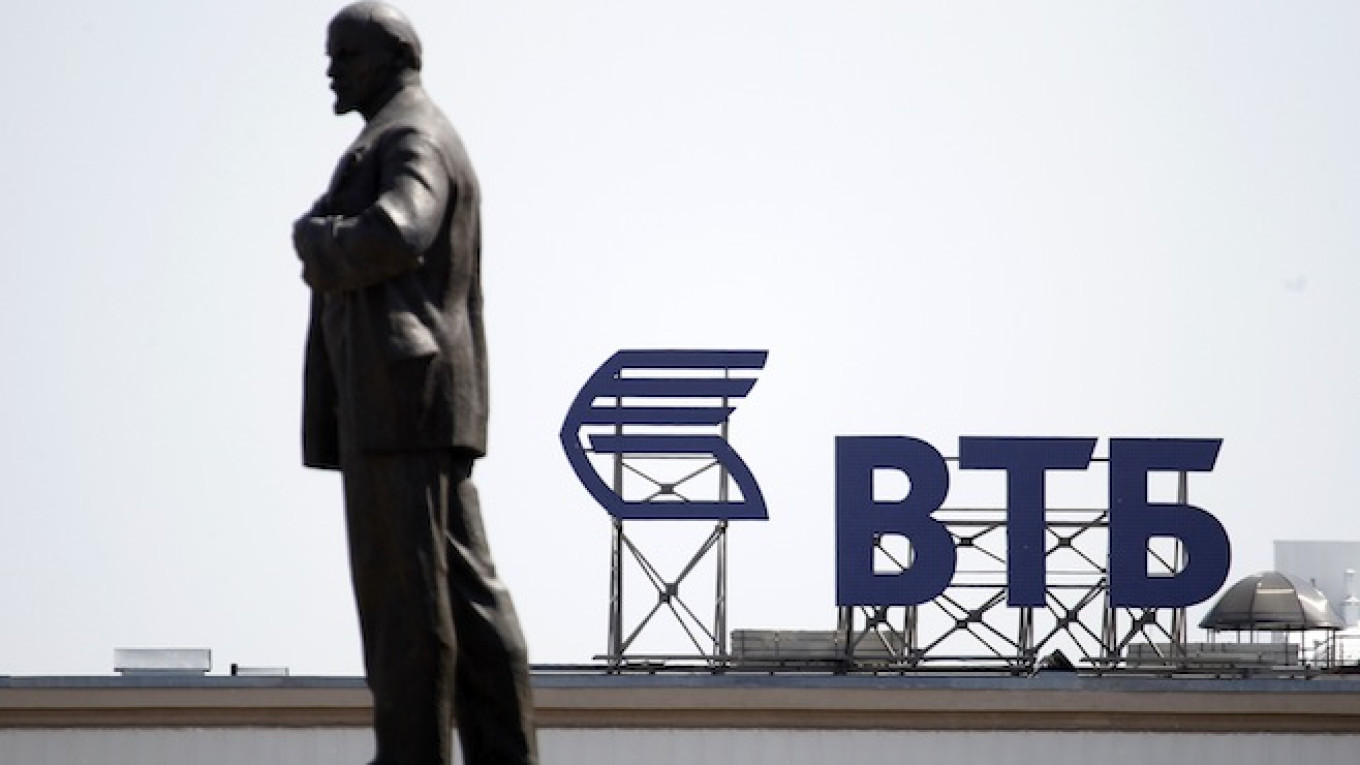Russia's state-controlled banks would have to turn to the state, domestic borrowers or new regions such as Asia if EU sanctions shut off investment, hurting their ability to lend to local businesses and further damaging the country's fragile economy.
Under measures being considered by European Union governments in response to the Ukraine crisis, European investors would be banned from buying new debt or shares of banks owned 50 percent or more by the state.
While the Russian government would step in to meet banks' funding needs, longer-term financing could be hit, hurting the banks' ability to finance business projects and crimping the country's growth potential.
It could also cause nervous investors to avoid Russia altogether, encouraging more capital outflows and putting pressure on the ruble.
"The net effect of state banks not being able to raise money in their traditional markets is that they will have to look domestically for money from the state," said Chris Weafer, senior partner with the Macro-Advisory consultancy in Moscow. "That … will reduce the money available for lending to the broader economy as state resources are not limitless."
The largest banks with state ownership of over 50 percent are Sberbank, VTB, Rosselkhozbank and Vneshekonombank, or VEB.
Russia's publicly listed banks raised almost half of their 15.8 billion euro ($21.3 billion) capital needs in EU markets last year.
"[Banks] will need to refocus, pursue their focus towards internal markets [or] Eastern markets such as Chinese ones," said one financial analyst who declined to be named.
However these options could prove more difficult.
"In Russia there is no long-term funding as such, and external markets were a big help," said BCS analyst Olga Naydenova. "This will affect Sberbank and VTB — it will be difficult to finance long-term projects."
Tip of The Iceberg
Russia's economy is on the brink of recession as a result of sanctions already imposed by the West on individuals and companies deemed close to President Vladimir Putin, as well as a broader risk aversion towards emerging markets. That has sent equities and the ruble tumbling and spurred nearly $75 billion in capital flight so far this year.
"It's the shadow impact of the sanction that's much greater," said one senior financial source in Moscow. "The point isn't how much is coming due in coming months by the state banks, but how much debt is out there that will be destabilized and what's going to happen to the credit default swaps and capital outflow and the ruble. It will be much greater than a specific set of sanctions on deals."
VTB has loans of $2 billion maturing in 2016 and bonds of $400 million. Sberbank has loans of $2.6 billion and 603 million euros ($812 million) maturing by 2017 and bonds of $2.8 billion.
Moody's said in March that foreign currency wholesale maturities in 2014 by eight key Russian banks — Sberbank, VTB, Gazprombank, Russian Agricultural bank, Alfa-Bank, Nomos Bank, Promsvyazbank and VEB — represent on average 1.5 to 2 percent of these banks' liabilities — around $15-20 billion.
Sberbank, VTB and VEB declined to comment. Rosselkhozbank did not respond to a request for comment.
Funds Jittery
Barring investors from buying shares in banks will also act as a further deterrent to holding Russian stocks and hurt those investing in benchmark indices.
"If you're not allowed to invest in certain securities, you're basically banned from investing in the benchmark, and that could be an issue, particularly for strategies that are more passive," said Geir Lode, head of global equities at Hermes Fund managers.
"The downside is you get stuck in a fund with securities you can't trade."
Shares of VTB fell 0.3 percent while Sberbank fell 0.8 percent on Thursday. The shares have fallen 18 percent and 23 percent respectively so far this year.
"People are underweight Russia but that doesn't mean more selling cannot happen because investor confidence is quite fragile," said Michel Danechi, portfolio manager at Swiss fund manager EI Sturdza.
See also:
A Message from The Moscow Times:
Dear readers,
We are facing unprecedented challenges. Russia's Prosecutor General's Office has designated The Moscow Times as an "undesirable" organization, criminalizing our work and putting our staff at risk of prosecution. This follows our earlier unjust labeling as a "foreign agent."
These actions are direct attempts to silence independent journalism in Russia. The authorities claim our work "discredits the decisions of the Russian leadership." We see things differently: we strive to provide accurate, unbiased reporting on Russia.
We, the journalists of The Moscow Times, refuse to be silenced. But to continue our work, we need your help.
Your support, no matter how small, makes a world of difference. If you can, please support us monthly starting from just $2. It's quick to set up, and every contribution makes a significant impact.
By supporting The Moscow Times, you're defending open, independent journalism in the face of repression. Thank you for standing with us.
Remind me later.


